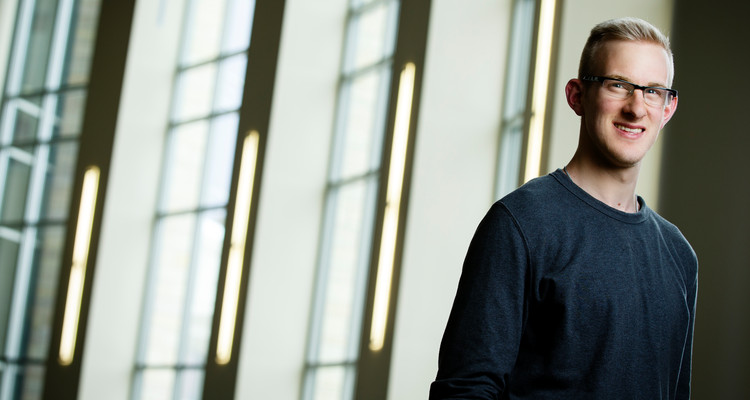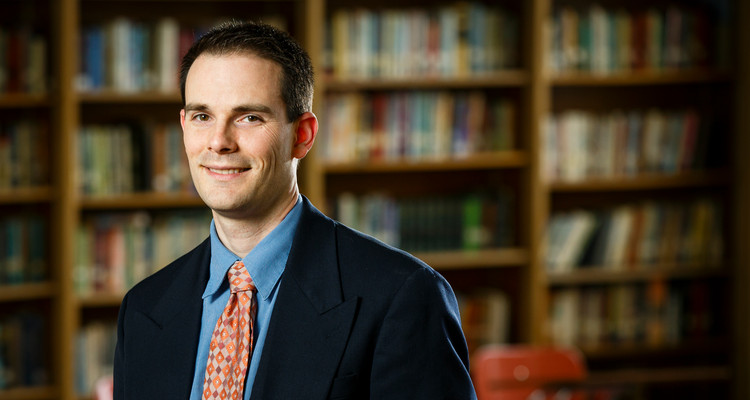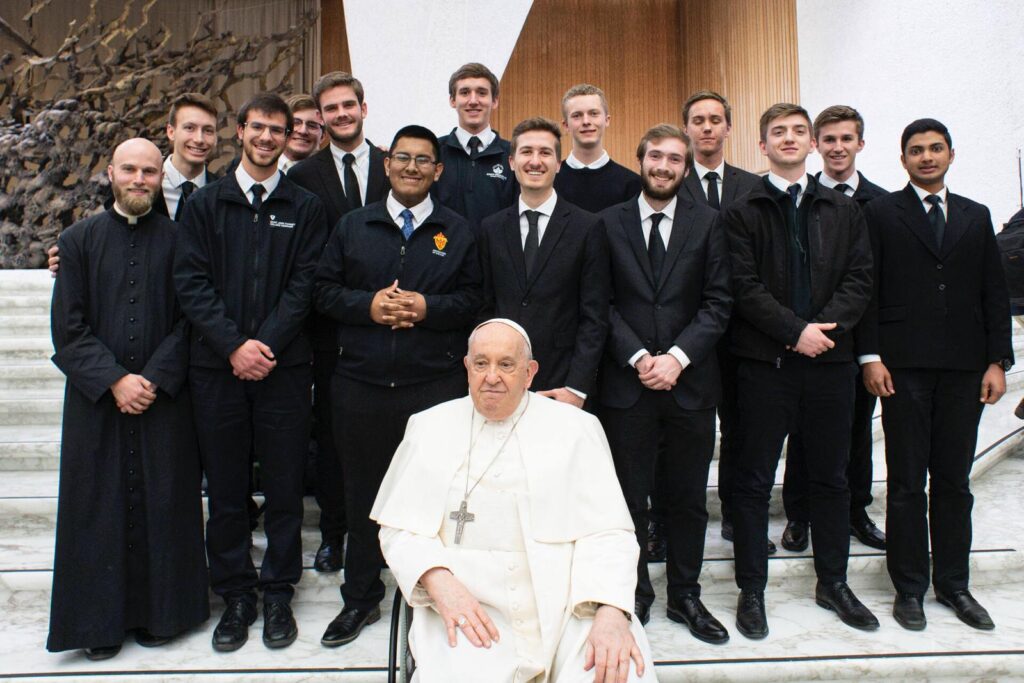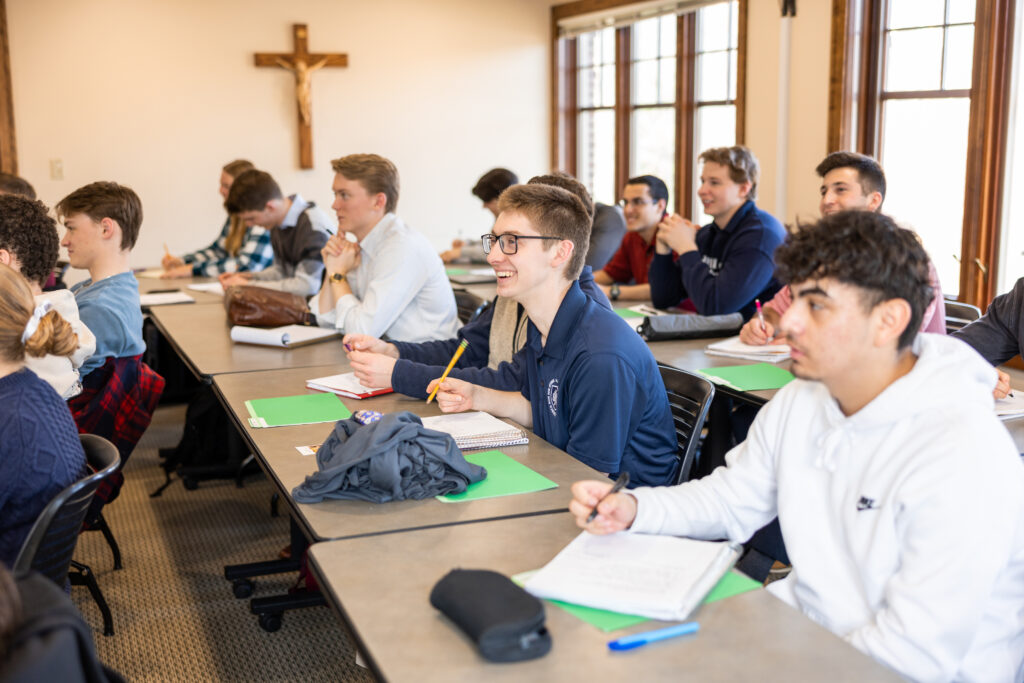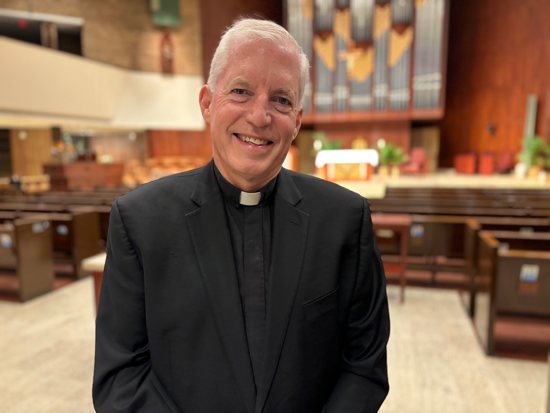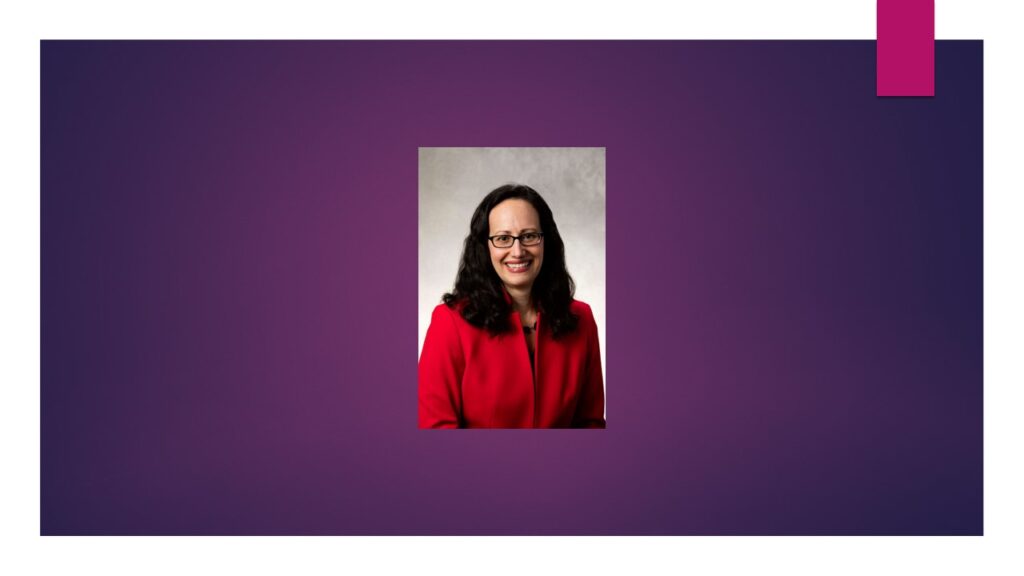An Opportunity to Explore the Catholic Faith
Joe Masek, Junior
Major: Neuroscience
Minor: Catholic Studies
When Joe Masek entered college, he temporarily left his Catholic faith. During his sophomore year, he turned back toward faith and decided he should know what he believed. Catholic Studies offered him the opportunity to learn more about the Church’s teachings. He was already far enough along in college that he could not add a second major without taking more than four years to graduate. A minor fit his schedule well.
Masek began as a biology major taking pre-medicine course requirements to prepare for the MCAT and medical training. He knew doctors who had participated in medical mission trips and was attracted to helping people in that way. He also wanted to have a large family, so a doctor’s high pay appealed to him. As he pursued his studies, he discovered they were different from what he had imagined, and he was having a difficult time finding a place he loved and in which he wanted to invest himself. As he returned to the Catholic faith, he began questioning: “Why am I going to school? Why have I chosen this major?” These questions led him to re-evaluate his path, and he ended up in neuroscience, combining a love of science with an interest in biology.
Masek wants to be a counselor. He sees his Catholic Studies minor as providing a backbone for his future work. “It gives a different perspective to the things I learn,” he said. He has brought what he is learning into his major field; in his class on alcohol, drugs and behavior, he proposed research with people who have had successful recovery from addiction through faith.
Masek has been considering how he will bring faith into his career as a counselor. He noted that Christian counselors vary in their approach to counseling from a perspective of faith. Some hang a picture of Jesus in their office to provide a sense of comfort to those they counsel; others more actively bring faith into the healing process. He believes that Jesus is the great Physician, so he wants faith to play a crucial role in his practice.
Masek also sees the opportunity to study in Rome as an important benefit of a Catholic Studies minor. In 2013 he found himself doing missions work, and then he went to Rome for a semester. “The program was great,” he said. “It’s well-established and well-run.” From his experience, students don’t need to enjoy travel to appreciate the Rome program.
Masek’s advice for students contemplating Catholic Studies is to use the opportunity to explore and take ownership of their faith. “Your faith should be important enough for you to want to know what you believe. My theology and Catholic Studies courses have given me a good backing to support my search for truth.”
A Catholic Perspective on Psychology

Amy Johnson, Junior
Major: Psychology
Minor: Catholic Studies
Amy Johnson transferred to St. Thomas in the fall of 2013 after serving as a missionary for NET Ministries. She enrolled knowing that she was going into psychology, a secular field that would present many different points of view. A Catholic Studies minor provides her with a way to gain a strong Catholic foundation as she prepares for her career, which she hopes will bring the opportunity to work with young women who are struggling with depression, eating disorders or post-abortion issues. “Jesus is the great Physician,” she said. “I need a foundation so that I can lead these women to Christ,” who can bring them healing that she alone could not provide.
Catholic Studies gives Johnson a perspective that otherwise might not have been available to her. She didn’t attend a Catholic school before college, so she especially welcomes more knowledge about her faith. As a transfer student, she would not be able to graduate in four years if she sought a double-major. She is glad to be able to minor in Catholic Studies as a complement to her major.
Johnson plans to bring together a practical knowledge of psychology, the ability to articulate her faith and an active prayer life in her approach to helping others. She noted that many counselors have the appropriate tools in the area of psychology, but they don’t have Christian faith to help them reach those they counsel with power and hope. Other times, a counselor has encountered Christ, but he or she lacks practical training in psychology. “You need both,” she said.
Catholic Studies also gives Johnson a different point of view on why people struggle psychologically. “In the United States, we are rich in terms of material wealth, but we are spiritually poor,” she explained.
After just one Catholic Studies course, Johnson found her minor affecting not only her perspective on psychology but also how she viewed a liberal arts education. “It’s been very transformative,” she said. She noted that many students may grumble about requirements in the core curriculum, but Catholic Studies has taught her to see them as a blessing. Courses at a liberal arts university do more than prepare students for their careers; they open students’ eyes to the world around them. An unschooled person might see the beauty in a tree, but someone with a liberal arts background might be able to use biology to explain how trees are structured and poetry to express the beauty of the tree.
“Education helps you to be more human, more whole,” Johnson said. “It can teach you to see through God’s eyes and help you desire to be more like God. This is good, because as we see the world through God’s love, we become more like Christ.”
A Bigger Purpose than Just Profit

Adam Weinzetl, Sophomore
Major: Actuarial science
Minors: Catholic Studies, Statistics
Adam Weinzetl is making the most of his college years by combining a major and minor that support his career path in actuarial science with a minor in Catholic Studies. He’s also considering a minor in philosophy. “St. Thomas is a liberal arts university,” he said. “There is more to college than getting a degree. It’s about getting a well-rounded education. It’s a chance to learn how to think and explore what you believe.”
“I will never have a better chance to learn about my faith in an academic setting than I do now,” he added. “Had I started Catholic Studies right away, I might have double-majored. But I have actuarial exams, and it would be brutal to take those while pursuing a second major.”
Since actuarial science is a technical discipline, Weinzetl has few opportunities in his major field of study to explore the questions that Catholic Studies addresses. Catholic Studies also gives him the opportunity to ask himself about his ultimate goals. “I knew it would be extra work to add a Catholic Studies minor, but I’m willing to do it,” he said. “My major and its exams are important, but Catholic Studies allows me to step back and talk about what’s really important. The classes are a nice reminder of my priorities.”
Weinzetl’s major leads down a more obvious career path than many others, but he thinks outside the box. “Being an actuary doesn’t scream making a difference,” he said, “but you can.” His Catholic Studies minor has helped him round out what he considers as he faces his future career. “It encourages me to work for a bigger purpose than just a profit. That’s not what I’m about. I want to make lasting change, and I want my faith to affect how I interact with people and how I do work.”
His father serves as an inspiration to him. “My dad just started his own company,” he said. “When he announced he was leaving his place of employment, they were sad to see him go. One thing people really appreciated about him was how he treated others. I saw that it isn’t just important to work hard and do a good job; it’s about how I work as a person.”
As he considers the future, Weinzetl is exploring ways to bring his faith and passion for making a difference into his career. He could pursue a path similar to that of a St. Thomas alumnus who is a nonprofit insurance contractor in Africa, selling micro-insurance to people who need it. He also has thought about using his skills in the area of climate change. “This is an opportunity for actuaries to work with modeling. I believe there are discoveries yet to be made in this area,” he said. “I’ve also considered finding companies I believe in and providing risk-management advice that would put them in a better standing.” Whatever he does, Weinzetl is dedicated to making a difference.
A Reminder About What it Means to Be Human

(Photo by Katie Truso)
Magdalene Lococo, Sophomore
Major: Exercise science
Minor: Catholic Studies
As an exercise science major, Magdalene LoCoco is fascinated with the human body. Catholic Studies has added dimensions to her studies that otherwise may have been missed. “Beginning with the Catholic Studies 101 course, I have learned to appreciate the nature of the human person in a completely different way,” she said. “This is especially applicable to my major. ... Catholic Studies continuously reminds me that we as humans are created in the image and likeness of our Lord. We are so much more than body parts and organs that work harmoniously together. We are people who have souls and whose lives have a purpose. ... It is so easy to get caught up in the amazement of the mechanics of the human body. Having my Catholic Studies experience as a foundation helps me to remember that we are so much more than parts.”
LoCoco said that she loves the program because it is not just for theology or philosophy majors. Anyone pursuing Catholic Studies can take what they learn into their sphere of work to engage the culture around them. “Catholic Studies has not altered my career plan,” she said, “however, it has significantly impacted the way I look at my life and my future. I see a huge need for the impact of people of faith within the medical field. I am confident that I will be able to apply what I learn in Catholic Studies to the field of nursing.” Like Weinzetl, LoCoco would have embraced a Catholic Studies major under different circumstances. “If it were up to me, I would take every single course that Catholic Studies offers,” she said. “The reason why I opted for the minor instead of a double major is because I am certain that I want to graduate in four years and hopefully attend a master’s in nursing program following graduation. In order to satisfy prerequisites for applying to such a program in addition to my major and core requirements, ... I simply did not have the time in my schedule to major in it.”
Even though she is not pursuing a Catholic Studies major, LoCoco has spent the past semester immersed in the Catholic Studies’ Rome program. She joked that it was a family expectation. “My parents and four older brothers studied in Rome during college,” she said. “One of my brothers, John, went through the University of St. Thomas Catholic Studies program and had nothing but good things to say about his experience.” She added, “Traveling abroad is a unique experience, and this is the best time to do it.”
LoCoco would encourage any student to pursue Catholic Studies while at St. Thomas. “It is an essential aspect of a liberal arts education and fully prepares you to live out a life of integrity and value, especially with your respective fields,” she said. “Take advantage of the amazing program that we are fortunate to have.”
Read more from Perspectives magazine.
